
The duo from the Critical Path Institute detailed the thought process behind evaluating the importance of specific biomarkers and their relation to disability progression in Alzheimer disease.

The duo from the Critical Path Institute detailed the thought process behind evaluating the importance of specific biomarkers and their relation to disability progression in Alzheimer disease.
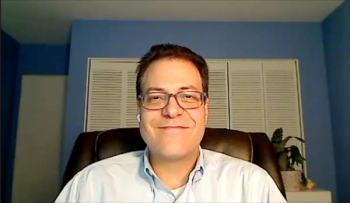
The president of the American Heart Association discussed the necessary steps to increase access to systems of care in order to improve health overall, including the integration of telemedicine.

A scientific statement and updated guidelines for stroke prevention were both published this year by the American Heart Association and the American Stroke Association; Mitchell S.V. Elkind, MD, MS, MPhil, discusses how the 2 coincide.
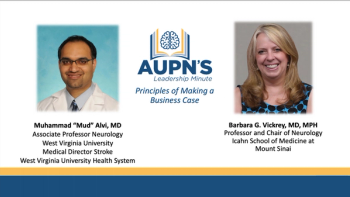
Episode 13 of the AUPN Leadership Minute features Muhammad “Mud” Alvi, MD, of West Virginia University; and Barbara G. Vickrey, MD, MPH, of Icahn School of Medicine at Mount Sinai. [WATCH TIME: 4 minutes]

The president of the American Heart Association commented on the integral aspect of collaboration between specialists and providers when it comes to poststroke care.

The president of the American Heart Association spoke on educating primary care physicians about poststroke care for adults, following the publication of new guidelines for care to foster long-term prevention.

The assistant professor of neurology at Harvard Medical School discussed why there isn’t just a “one size fits all” approach to treating cranial neuralgias.
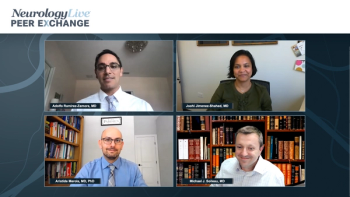
Michael J. Soileau, MD, discusses the challenges of starting a device-assisted therapy in patients with advanced Parkinson disease.

An advanced Parkinson disease expert explains how to discuss the different device-assisted therapy options with patients.

Joseph Sullivan, MD, and Elaine C. Wirrell, discuss the transition of care into adulthood of patients with Dravet syndrome.
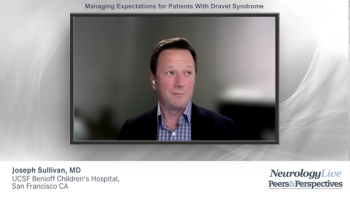
Key opinion leaders discuss managing patient expectations regarding clinical trials for Dravet syndrome treatment.
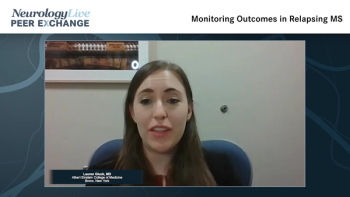
Lauren Gluck, MD discusses considerations for monitoring response to treatment in relapsing multiple sclerosis.
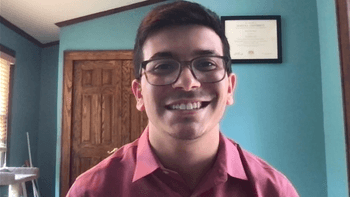
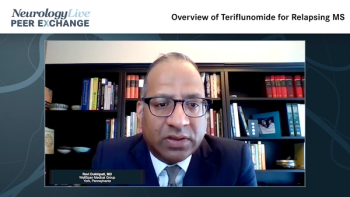
Lauren Gluck, MD, and Ravi Dukkipati, MD, provide an overview of teriflunomide for relapsing multiple sclerosis including its safety and tolerability profile.
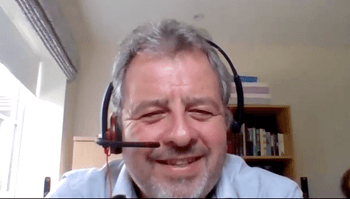
Clive Ballard, MD, spoke on the safety data of pimavanserin, which was presented at the 2021 AAIC meeting, held from July 26-30.
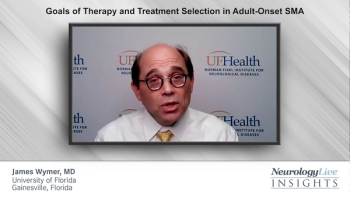
An insight into the goals of therapy and treatment selection between oral and intrathecal medications for adult-onset spinal muscular atrophy.
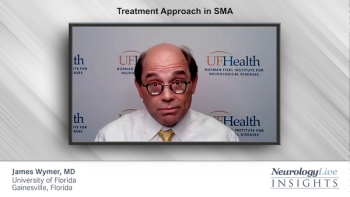
A discussion of the multidisciplinary treatment approach in spinal muscular atrophy.
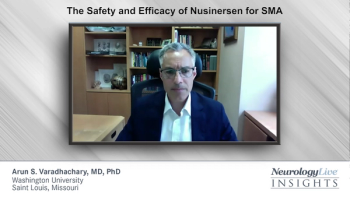
A specialist in the care of patients with spinal muscular atrophy reviews the CHERISH trial of nusinersen and examines the drug’s safety and efficacy profiles.
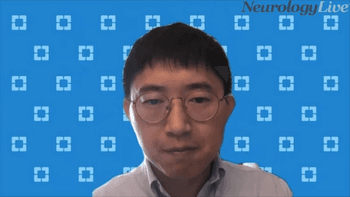
The assistant professor at Cleveland Clinic discussed key factors to consider when choosing repurposed drugs that could show max potential in treating Alzheimer disease.
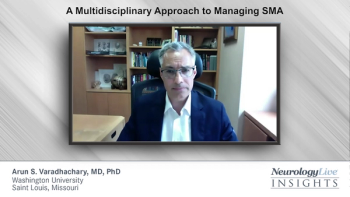
A key opinion leader in neurology highlights the value of a multidisciplinary approach to care for patients with spinal muscular atrophy in order to maximize a patient’s function through physical and medical therapy.

Clive Ballard, MD, professor of age related diseases at University of Exeter, commented on the potential impact that the approval of pimavanserin would have for patients if approved for dementia-related psychosis.

The assistant professor of neurology at Harvard Medical School provided thoughts on the need to increase awareness on cranial neuralgias and the importance of the diagnostic process for this condition.

The duo from the Critical Path Institute discussed how CPAD is revolutionizing data collection within the Alzheimer disease community and the advantages it brings to clinicians.

Clive Ballard, MD, spoke on safety data presented at this year’s AAIC meeting, as well as the impact of symptoms associated with DRP, which can be distressing for individuals and their families.

The assistant professor of neurology at Harvard Medical School discussed the motivation behind uncovering more about painful cranial neuralgias and their association with posttraumatic headache.

Ballard, a professor of age related diseases at University of Exeter, discussed the results from a recent trial of pimavanserin in dementia-related psychosis, and data presented at this year’s AAIC meeting.

Following the publication of new guidelines for the care of adults poststroke, the president of the American Heart Association commented on streamlining systems of care to manage acute stroke and foster long-term prevention.

The president of the American Heart Association spoke on the newly published scientific statement and its implications for the clinical stroke treating community.
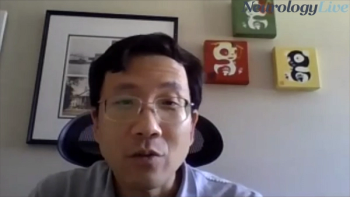
The chief medical officer of Scholar Rock discussed the upcoming phase 3 trial for apitegromab in SMA and whether a successful trial would warrant FDA submission.

The director of Montefiore Hudson Valley Center of Excellence for Alzheimer’s Disease, associate professor of neurology, Albert Einstein College of Medicine, discussed recent developments in Alzheimer disease research, including FDA approval of aducanumab, as well as the importance of engaging community-based organizations to improve patient care.